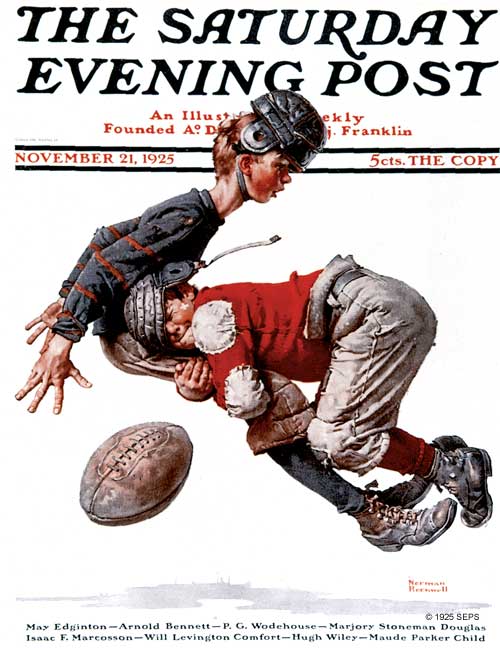The political focus is coming to the state with the Republican primary and the recall vote. The state of the Green Bay Packers, Milwaukee Brewers and Milwaukee Bucks will assume a higher profile.
Minnesota has teams named for "Minnesota." We assume that's the way it should be but we wonder why our neighbor to the east is different. Is "Wisconsin" a secondary identity?
Wisconsin seems in a world of hurt now with division. One wonders if Minnesota would be in similar straits if we had elected Tom Emmer. I'm surprised the Republican came as close as he did, and were it not for an old DUI issue he may well have gotten swept in as part of the Republican/tea party/reactionary wave.
Many of the people who pulled the lever for Republicans in 2010 thought they were voting for normal Republicans.
It wasn't unusual that the electorate would lean Republican in the off-year election. We had elected Barack Obama president and there was some hesitation over whether we really wanted the Democratic agenda to take over.
The electorate can be blamed for not getting properly educated. Maybe these new ID cards for voting should include some proof you're not voting impulsively.
People just assumed that Republicans were a predictable sort of animal. I mean, we have Democrats and Republicans and we'd like to feel they are all decent, rational human beings with manageable differences in terms of political philosophy.
They should be able to argue vigorously, even with a profanity or two, and then get together for a drink afterwards. A Pepsi.
They should be able to argue vigorously, even with a profanity or two, and then get together for a drink afterwards. A Pepsi.
This is the way politics used to be. The idealized model was Tip O'Neill vs. Ronald Reagan. I just cannot see Ronald Reagan among the fire-breathing goons who call themselves conservatives today.
Wisconsin is engaged in considerable soul-searching now as it ponders whether it really feels comfortable with the more hard-edged brand of Republican, which they apparently didn't know they were getting.
We have the Democrats who are a pretty known commodity. We have Republicans like Olympia Snowe who have fallen out of the mainstream of her party, hence her harried departure.
Then there is this weird third branch, which reminds me of an episode of the old Monty Python Flying Circus. The faux news program was reporting on an election that included not only the "Sensible" and "Silly" parties but an "independent Very Silly Party." When reporting the candidates' names of that latter party, this newsman had to use a noisemaker.
The very conservative activists among us might well be called "very silly." Wisconsin chose a governor from that category and things have been quite amiss there since. This individual is Scott Walker.
We now have the official nod for a recall vote. That's pretty drastic and pretty embarrassing for Wisconsinites, who'd love to just focus on Packer football.
We now have the official nod for a recall vote. That's pretty drastic and pretty embarrassing for Wisconsinites, who'd love to just focus on Packer football.
What state in its right mind would want to be perceived as having had its head up a certain part of its anatomy in the last election? And what a huge and expensive distraction this is. Perhaps it's dividing families.
The type of people with pro-gun bumper stickers will back Walker. These people also shake their fist behind the "stand your ground" laws, the castle doctrine and voter suppression policies. The right wing industry swoops into the state with propaganda and intimidation tactics.
Is that an overstatement? Just think of the ridiculous effort to intimidate media organizations by finding out who among them might have signed the recall petition. I became aware of this when checking Fox News last week. There was a self-righteous talking head (a program guest) berating the "biased" media.
The petition regarding Walker got 900,938 signatures, while only 540,208 were needed. It was a totally legal process in which all citizens should have felt welcome to participate.
There are chain newspapers in Wisconsin that showed absolutely no spine in standing up to the pro-Walker cabal. I have to laugh because I would be astounded if a chain newspaper company showed any spine or conscience.
Chain papers know what the rest of us are slow in learning: that newspapers are businesses that live on advertising dollars, and their decisions are wholly grounded by that consideration, not by any particular journalistic ideals.
In other words, they scare very easily, like "Beaker" of the Muppets.
In other words, they scare very easily, like "Beaker" of the Muppets.
Businesspeople are scared very easily by conservatives. The Wisconsin papers of the Gannett chain felt they had to apologize. Because the petition signers were public information, and because zealous groups can comb through those names for purposes of harassment, it was learned that 25 employees among those Wisconsin papers signed the petition.
The suits that run the company prepared a column that was run in these papers under the names of local editors (lackeys). They went through the painful gymnastics of explaining that as a matter of principle, "journalists must exercise caution and not become involved with issues that may cause doubts about their neutrality as journalists."
Gannett claims that none of the "political activists" (my words) in their ranks are involved directly in political coverage. Even so, the ones who signed are seen to have committed ethical violations and are subject to discipline, the company says as it cracks the whip.
Of course, principle plays no part in any of this. The people running this newspaper company, in a business that is in a well-known retreat, are just scared. They absolutely don't want to confront the right wing harassers.
It's purely quaint to think journalists should be neutral. Besides, isn't not signing the petition a political statement?
What if Gannett's attitude spread to other companies? It would become a serious intrusion into our political process. Because the recall effort, however divisive it might be, has the imprimatur of the state. It's legal.
The truth is that reporters should report fairly regardless of their political beliefs. It doesn't mean they should be devoid of political beliefs.
Besides, wouldn't you really rather know the opinions of the writers whose work you are consuming? Much of the media today is in fact partisan media. There is a great market for it.
Besides, wouldn't you really rather know the opinions of the writers whose work you are consuming? Much of the media today is in fact partisan media. There is a great market for it.
Meanwhile the staid old newspaper business draws a yawn as it fades into the sunset.
What about newspaper chains like the Forum of Fargo, owner of two papers in Stevens County, that actually endorse candidates? How would the right wing harassers in Wisconsin square that?
The Forum has a right-leaning reputation - can you name a left-leaning newspaper chain? - so the Wisconsin activists would pay no heed. Anything that furthers their agenda.
Isn't signing the recall petition just like voting - a citizen's valid option or duty (at least to take a side)?
Gannett rebuts this. The soulless bigwigs who pull the strings, who daily are in meetings on how to manage the newspaper industry's retreat, are saying the recall vote is too "emotional" to be viewed like this.
Gannett rebuts this. The soulless bigwigs who pull the strings, who daily are in meetings on how to manage the newspaper industry's retreat, are saying the recall vote is too "emotional" to be viewed like this.
Emotional? It's a legal process. If certain people choose to become emotional, it's their problem.
Gannett says "the super-charged emotions should have been a red flag for journalists. They should have realized there'd be a public backlash."
There was no "public backlash." There was a carefully orchestrated cry of foul from the usual suspects on the right, people like Brent Bozell, ol' Redbeard, who has made a racket out of this kind of feigned outrage. It's a nice gig for him.
It's ridiculous to even talk about "media bias" today when there are a million voices out there. We just have to carefully choose what we consume. It's not hard to figure out what voices reflect a certain agenda.
Wisconsinites might well reject the recall effort because it just looks untoward, nationally speaking, to just yank a governor. It's embarrassing to admit the citizens of the state were misguided in the first place. They just didn't see they were electing a member of the "Very Silly" party.
This is a guy who has hired defense attorneys. There is an ongoing criminal investigation of former Walker aides.
The conflict in Wisconsin is being described as a "civil war." Did we in Minnesota barely miss ending up in the same or worse situation?
I'm surprised Republican Emmer came as close as he did. We could have ended up in a roiling political atmosphere here, in the state that once elected Walter Mondale and Paul Wellstone. Today we elect some people like we're South Carolina.
The partisanship of today is so severe, we can't even seem to reach a general agreement on the Trayvon Martin murder case. Oh wait, it might not be a "murder." The righties are taking pains - just watch Fox News - to get the shooter's side of the story as a way of protecting Jeb Bush from embarrassment.
It was Bush, generally considered "the smart Bush brother," who signed the Florida "stand your ground" law. Jeb applied the pen with an NRA official standing right behind him.
Floyd R. Turbo would have been proud.
Floyd R. Turbo would have been proud.
We once laughed at Johnny Carson's Turbo character as being an ignoramus. Today these people are getting elected.
God save us from the "Very Silly" party.
- Brian Williams - morris mn minnesota - bwilly73@yahoo.com




























